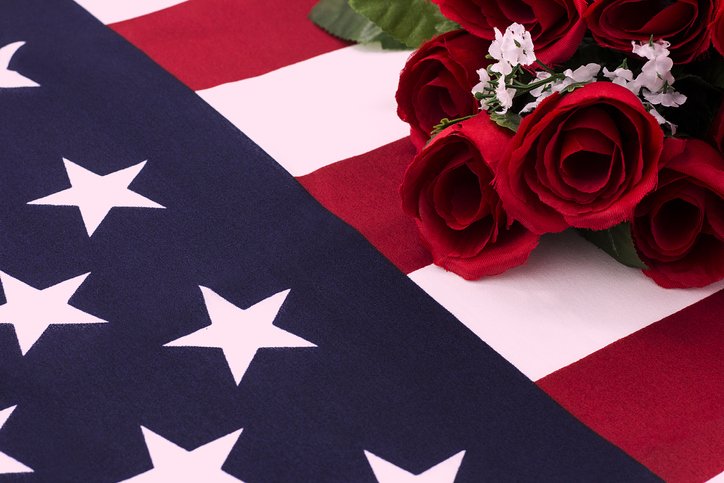Honoring Our Heroes: Important Tips for Planning a Veteran’s Funeral
If you’re planning a funeral service for a veteran, there are a number of valuable benefits that may be available to you. These benefits are not provided automatically and must be requested, typically through applications and forms submitted to the Department of Veterans Affairs (VA).
In this article, we’ll answer important questions about obtaining military funeral benefits and provide helpful pointers for making your loved one’s service the respectful, dignified event he or she deserves.

Learn how to secure military benefits. To secure veterans funeral benefits, you will need to produce your loved one’s military discharge papers, the death certificate, and any receipts for the cost of transporting the body. When supplying proof of eligibility or other official records, don’t send original documents because they will not be returned. Once these items are compiled, your funeral director can assist you with submitting them and completing the required VA paperwork.
Get to know what veterans’ funeral expenses are covered by the VA. A common misconception is that funeral or cremation arrangements for all veterans will be funded by the VA, but this is only true in certain cases, such as when the service member has been killed in the line of duty. Every eligible veteran can receive a military honors ceremony, including the folding and presentation of the U.S. flag performed by two or more uniformed military persons and the playing of Taps by a live bugler or recording. The funeral director requests these honors on behalf of the family in advance of the funeral. These ceremonial rights are available to active duty, military retirees, members and former members of the Selected Reserve, eligible U.S. veterans of any war, and other veterans who served at least one term and separated under conditions other than dishonorable.
Determine the eligibility requirements for national and private cemetery burial. Generally, any member of the U.S. Armed Forces who dies while on active duty or any veteran who was discharged under conditions other than dishonorable is entitled to burial or inurnment in a VA national cemetery or state veterans cemetery. This includes:
- An assigned grave site
- Opening and closing of the grave
- A grave liner for casketed remains
- A government headstone or marker
- Perpetual care at no cost
It’s important to note that VA national cemeteries only allow arrangements to be made at the time of death and spaces are assigned based on availability. So if you are not choosing burial in a private cemetery, there is no guarantee that spouses or other family members will be interred side-by-side or even nearby. In addition, burials In VA national cemeteries are not conducted on weekends.
Understand what monetary funeral benefits you may be entitled to. In certain cases, the VA can provide some funding for the funeral. The family of a veteran may receive:
- Up to $2,000 in burial benefits for service-related deaths that occurred on or after September 11, 2001
- Up to $1,500 in burial benefits for service-related deaths that occurred before September 11, 2001
- Reimbursement of some or all costs of transportation to a VA National Cemetery
- $255 in government benefits
- $700-$1,400 if the veteran passed away in a VA hospital
- $300 for burial and funeral expenses for a veteran who did not pass away in a VA hospital
- $300 for a plot allotment for a veteran choosing a burial in a private cemetery
Grief support is available if you need it. The VA offers free bereavement counseling to families who’ve lost a loved one on active military duty. Spouses, children, and parents of service members, reservists, and National Guard soldiers are eligible for this program. Grief counseling for families of discharged military personnel can be found through a number of nonprofit organizations. The Tragedy Assistance Program for Survivors (TAPS), for example, provides support for anyone who has lost a military loved one, regardless of their relationship to the deceased or the circumstances of the death.
We’re here for you. The compassionate professionals at Vaughn Greene Funeral Services can guide you through the process of completing and submitting the required forms and documents, cemetery selection, and determining which benefits you may be eligible to receive. With decades of experience planning funerals for thousands of service members, we’re experts in making sure the veterans in our care receive military funeral honors fit for a hero. If you need assistance planning a funeral for your beloved service member, please contact us. We appreciate the opportunity to serve you.
About Vaughn Greene Funeral Services: For more than 20 years, Vaughn Greene Funeral Services has been providing a ministry of care to Baltimore’s African American community. As a leading local, minority- and family-owned provider, we promise to provide our highest level of service and respect to families who entrust us to honor their loved one. For more information, please call us at 410.655.0015 or visit us online at https://vaughncgreene.com/.







Comments